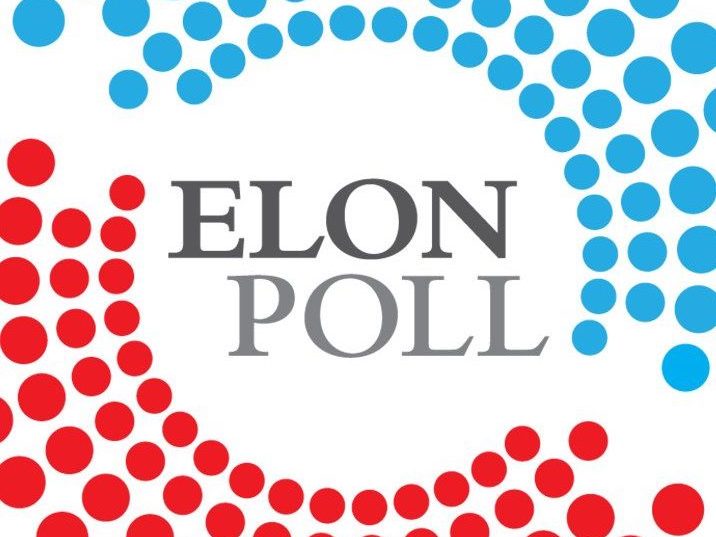The survey of more than 1,800 college graduates was conducted in partnership with the Center for Engaged Learning at Elon University.
The Elon University Poll has gathered input from more than 1,800 college graduates to identify how often college students participate in high-impact undergraduate experiences and the influence that a range of college experiences have had on their personal and professional development.
The survey, which was conducted in partnership with the Center for Engaged Learning at Elon University, found that half of graduates participated in an internship or work placement, making it the most common high-impact experience among those surveyed. Thirty-six percent participated in service-learning experiences, 32 percent participated in undergraduate research, 32 percent participated in a capstone project or experience, and 20 percent studied abroad.
Additionally, the survey found that 64 percent of graduates believe their college experience helped prepare them for the work they have done since graduating, and 83 percent rated their college experience as somewhat or very rewarding. Nearly half (48 percent) said attending college was “definitely worth it” for them personally, with another 37 percent saying that college was “probably worth it.”
Among the most common skills graduates said they developed while in college were researching and understanding the answers to complex questions (82 percent), writing effectively (80 percent), using and interpreting data (78 percent), meeting deadlines (77 percent and managing time (75 percent).
Managing time and meeting deadlines stood out as skills that those surveyed were most likely to say were both very important for success in their day-to-day lives and were developed while in college. Those surveyed were least likely to say they developed skills in volunteering in the local community (50 percent), keeping up with the news (46 percent) and engaging with local government (44 percent), but graduates were also less likely to say those skills are very important in their day-to-day lives.
“Many of the skills graduates said they developed in college also are skills they could test in internships and workplaces,” said Jessie Moore, director of the Center for Engaged Learning and author of a forthcoming book on key practices for fostering engaged learning. “The Center for Engaged Learning is launching a new international research project to explore how to make these types of work-integrated learning experiences as effective and equitable as possible for student learning.”
The survey of 1,832 U.S. residents who were 18-34 years old and graduates of two- or four-year higher education institutions was conducted Nov. 10-12, 2021, using an online opt-in sample marketplace. The survey has a credibility interval of +/- 2.4 percent. The credibility interval is an accuracy measure for opt-in online surveys. A fuller explanation of the credibility interval and the survey methodology are available in the full report.
Common College Experiences
The survey also asked about common college experiences to gain a sense of how often students participate in a variety of experiences that could lead to their personal and professional development.
The Elon Poll found that graduates were most likely to receive feedback from faculty/staff on a submitted final project (71 percent), followed by having meaningful relationships with other students (69 percent) and having opportunities to reflect on how what they are learning could apply to their future (67 percent).
Graduates were least likely to have had opportunities to reflect on how the different parts of the college experience fit together, with 17 percent saying they never had such opportunities. Graduates were also less likely to have meaningful relationships with faculty or staff, with only 54.5 percent saying they had those experiences multiple times (the lowest level among the experiences asked about in the survey) and 16 percent saying they never had such relationships.
“We know that opportunities to reflect on how college experiences integrate and to form meaningful relationships are key practices for engaged learning,” Moore said. “Plus, if you aren’t sure how the different pieces of your college experience – the courses and the co-curricular activities – connect to prepare you for your future goals, you probably won’t identify those experiences as contributing to the value of your college degree. Colleges need to take a close look at how – and how often – they foster these opportunities for students.”
Mentorship experiences
While relationships with faculty and staff may have been less common, the Elon Poll did find that 71 percent of graduates believe that educational relationships with peers, faculty and staff were extremely important or very important to their overall success in college. Only 8 percent said such relationships were slightly important or not at all important.
“This poll confirms what decades of research have shown – student relationships with faculty, staff, and peers are essential to a high-quality undergraduate experience,” said Peter Felten, executive director of the Center for Engaged Learning and co-author of “Relationship-Rich Education.” “The opportunities students have to do meaningful academic work, to apply what they’ve learned outside of the classroom through internships and community-based experiences, and other high-impact practices create a relationship-rich environment for students to develop the knowledge, skills, and mindsets that will serve them well after they graduate.”
Graduates were most likely to say that their relationships with their fellow students were the most important for their overall success in college, with 45 percent holding that view. Twenty-eight percent said faculty relationships were most important, 11 percent said family relationships, 10 percent said staff relationships, 4 percent said alumni relationships



